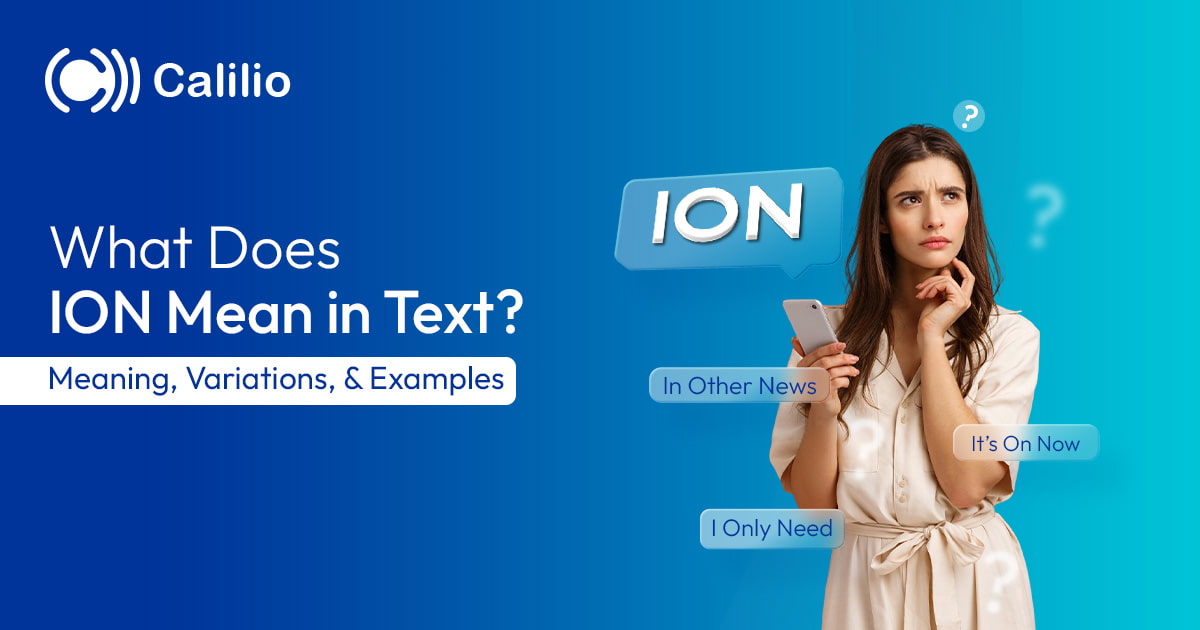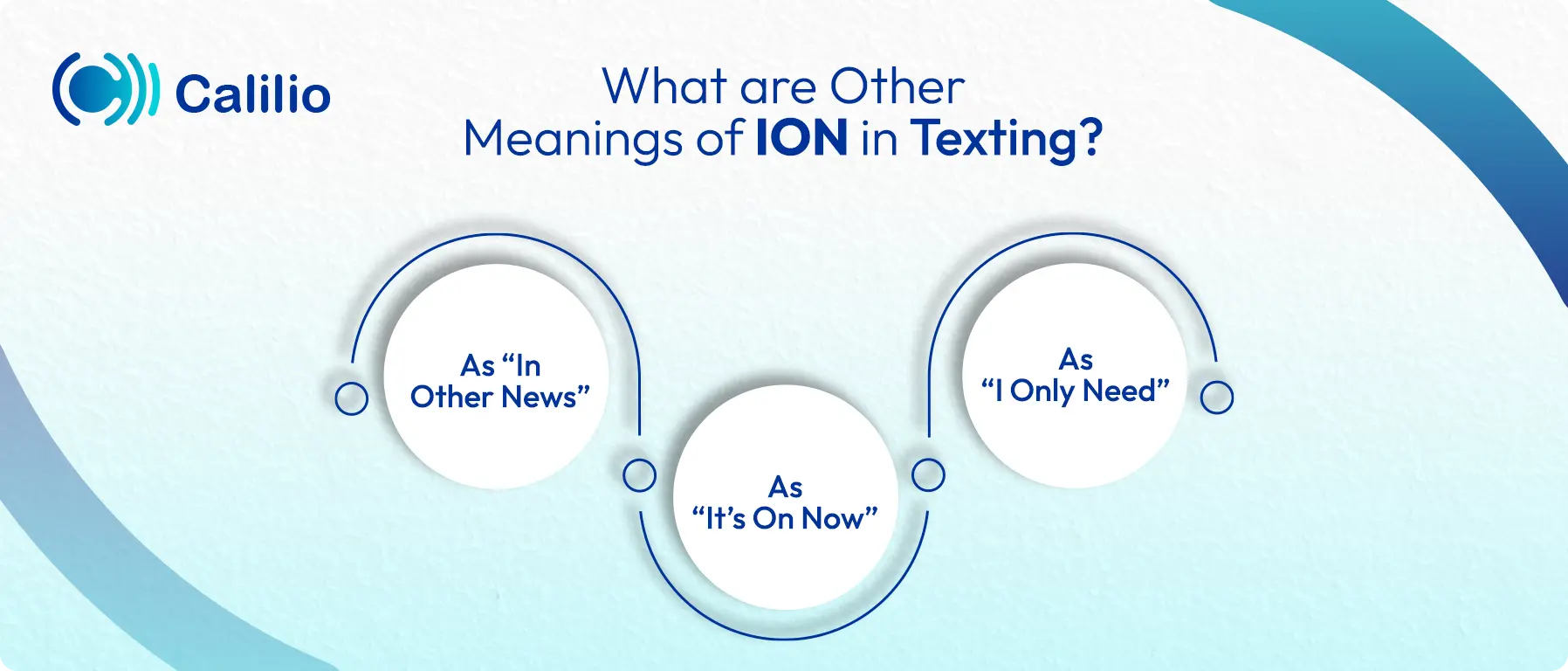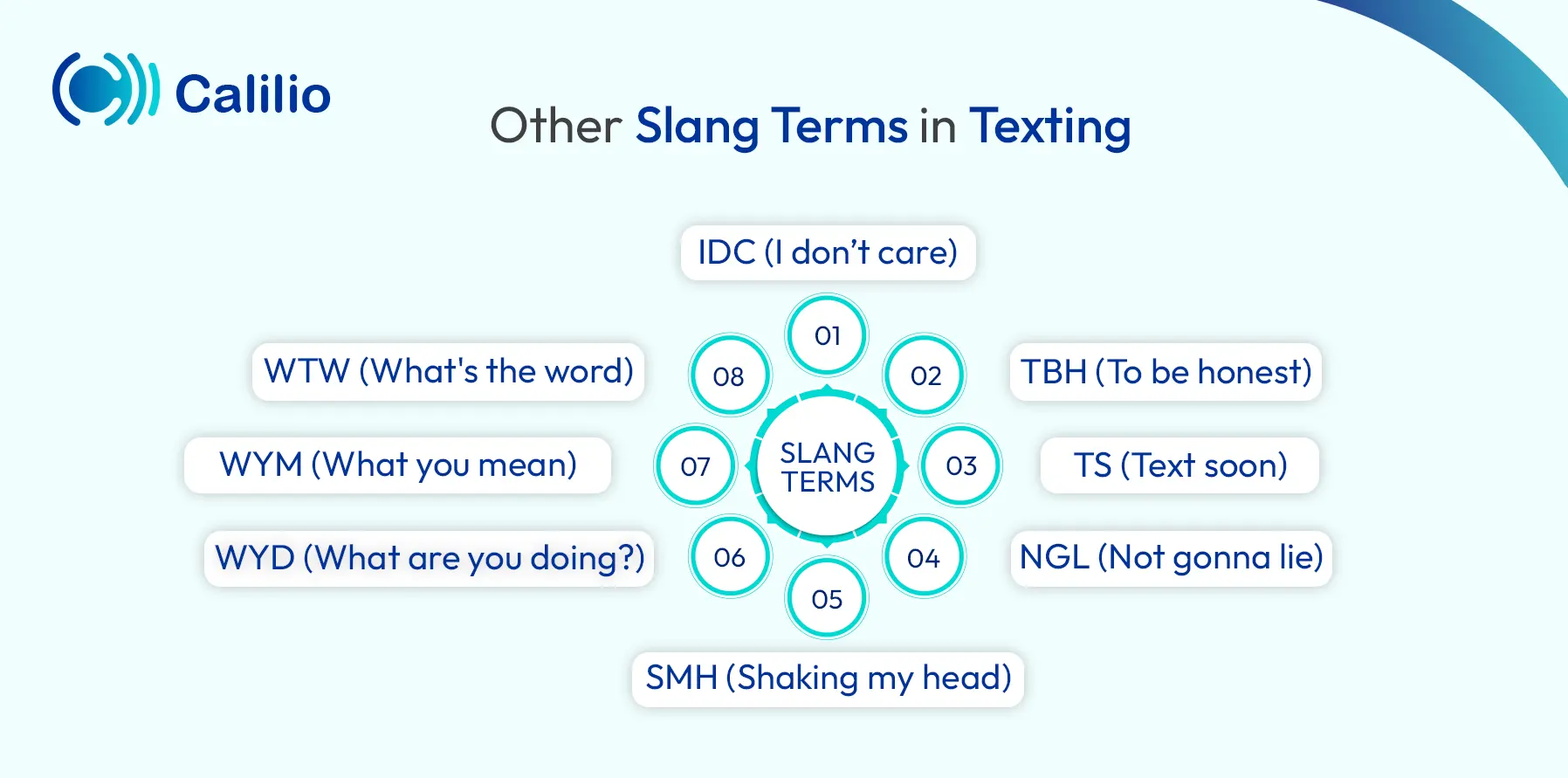What Does ION Mean in Texting?

Whenever you search online for the meaning of ION, you’ll likely see a scientific definition related to chemistry. However, in online texting and social media conversations, ION has an entirely different meaning. In digital slang, ION is commonly used to mean “I don’t” or as a short form of “In Other News,” depending on how it appears in a message.
For example, in casual texting, someone might say “ion care” to mean “I don’t care,” or “ion going” to mean “I’m not going.” In a different context, especially in posts or captions, ION can be used as “in other news” to shift the topic, such as “ION, the update just dropped.”
Therefore, understanding what ION means in each context helps you interpret messages correctly and use the slang more confidently yourself. As you read this blog, you’ll learn how to recognize its meaning instantly and apply it correctly in different online conversations without confusion.
Key Highlights:
ION in texting commonly refers to “I don’t” or “In Other News”, depending on the context of the conversation.
ION originated from African-American Vernacular English (AAVE) and is mostly used in casual, informal chats.
ION is not suitable for professional settings due to its informal and varied meanings.
Understanding slang like ION helps you communicate clearly and avoid misunderstandings in digital conversations.
What Does ION Mean in a Text Message?
In text messages, "ION" is a slang used for “I Don’t” or “I do not”. It is used in texting as a casual way of refusal or disinterest. However, it is not suited for professional or business communication because of its laid-back tone.
ION comes from African-American Vernacular English (AAVE) and is often used to express disagreement or disinterest in an informal way.
For Example:
Person 1: “Did you watch the soccer match live yesterday?
Person 2: “No, ION like watching any sports.”
What are Other Meanings of ION in Texting?
Besides “I don’t”, ION can also mean “In Other News”, “It’s On Now”, and “I Only Need”, depending on how it’s used.

1. As “In Other News”
Another common meaning of ION is “In Other News.” People use it often to shift a conversation to something unrelated to what was being discussed. It works like a quick transition phrase, letting someone bring up a new topic without making the switch feel awkward.
For Example:
Person 1: I can’t believe my Wi-Fi crashed again.
Person 2: ION, are you ready for the game tomorrow?
Here, ION signals that the speaker is changing the subject and moving the conversation in a new direction.
2. As “It’s On Now”
In some conversations, ION is used to mean “It’s On Now.” This version usually shows excitement, determination, or a challenge, often when someone wants to hype up a situation or respond with confidence.
For Example:
Person 1: They said we don’t stand a chance in the match.
Person 2: ION! Let’s prove them wrong.
Here, ION adds energy to the reply, signaling that the person is ready to take action.
3. As “I Only Need”
Sometimes ION is used as shorthand for “I Only Need.” In this context, it helps keep messages short while making requests or clarifying what’s required.
For Example:
Person 1: Do you want me to bring anything to the study session?
Person 2: ION a notebook and a pen, that’s all.
Here, ION simplifies the response, showing exactly what the person needs without extra words.
Other Extended Versions of ION in Texting
Besides being used as “I don’t”, ION also appears in different versions where an extra letter adds extra meaning to the abbreviation. Here are some of the common versions of ION used during online communication.
IONT: "I Don’t Think"
People use “IONT” when they want to casually express doubt or uncertainty.For Example:
Person 1: Do you think she’ll make it on time?
Person 2: IONT, she’s always running late.IONC: “I Don’t Care”
If a person isn’t bothered by an opinion, rumor, or situation, they might respond with IONC. It means they’re not affected by the situation or context of what is being discussed.For Example:
Person 1: People are judging your new haircut.
Person 2: IONC, I like it.IONL: “I Don’t Lie”
IONL stands for “I Don’t Lie.” It is used when someone wants to stress their honesty and emphasize that they’re telling the truth.For Example:
Person 1: Was that really the best pizza you’ve ever had?
Person 2: IONL, it was amazing.IONK: “I Don’t Know”
IONK means “I Don’t Know” in slang. It is used when someone feels unsure or doesn’t have a clear answer about something.For Example:
Person 1: Are we still meeting up tonight?
Person 2: IONK, nobody has confirmed yet.
Other Slang Terms in Texting
Some of the popular slang terms in texting include TBH, TS, NGL, SMH, WYD, WYM, WYF, and WTW.

- IDC (I don’t care): It is used to show indifference or that something doesn’t matter to them.
- TBH (To be honest): It indicates someone wants to share a truthful and honest opinion.
- TS (Text soon): It’s a quick way to tell someone you’ll message them shortly.
- NGL (Not gonna lie): Similar to TBH, it is often used before sharing an honest opinion.
- SMH (Shaking my head): Used to show disappointment, disbelief, or frustration when reacting to something silly, annoying, or hard to believe.
- WYD (What are you doing?): It is a casual way to ask what someone is up to.
- WYM (What you mean): Used when you want clarification from the other party.
- WTW (What's the word): It’s a casual greeting or way of asking what’s going on.
- WYF (Where you from?): It’s often used to ask someone about their location or hometown in casual chats.
Conclusion
ION may look simple, but its meaning can shift depending on the conversation—from “I Don’t” to “In Other News” or even “It’s On Now.” That’s what makes it fun and versatile in digital chats. The key is to read the context, so your replies land the right way.
With the tips mentioned above, we hope that the next time you see ION pop up in your texts, you’ll know exactly how to keep the conversation flowing!
Summarize this blog with:
Frequently Asked Questions
Is the slang “ION” a new trend?
“ION” isn’t entirely new, but its popularity has been growing recently, especially among younger generations on social media.
How do you respond when someone texts ION?
Is it okay to use ION in a professional setting?

Still have questions?
Can’t find the answer you’re looking for? Please chat with our friendly team.
Stay in the loop
Get the latest call insights, trends, and updates delivered straight to your inbox.
By subscribing, you agree to receive updates from Calilio.
You can unsubscribe anytime.
